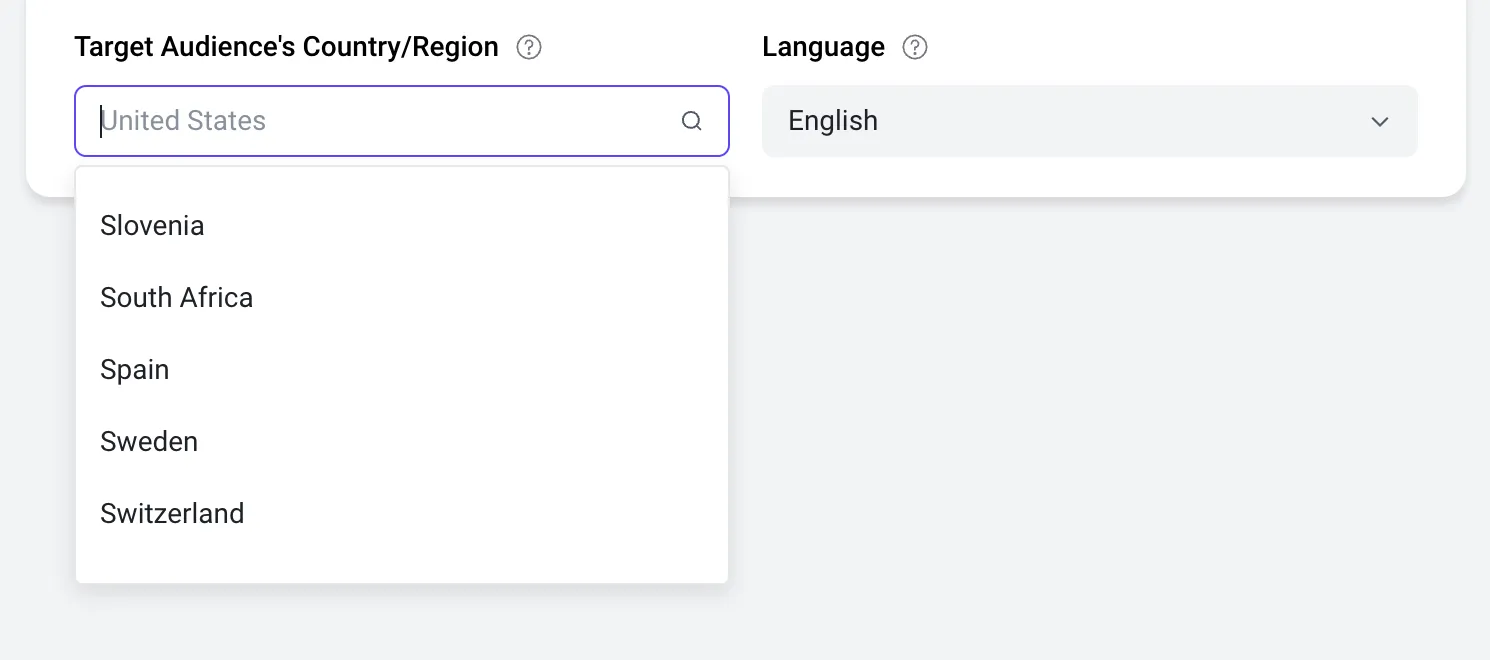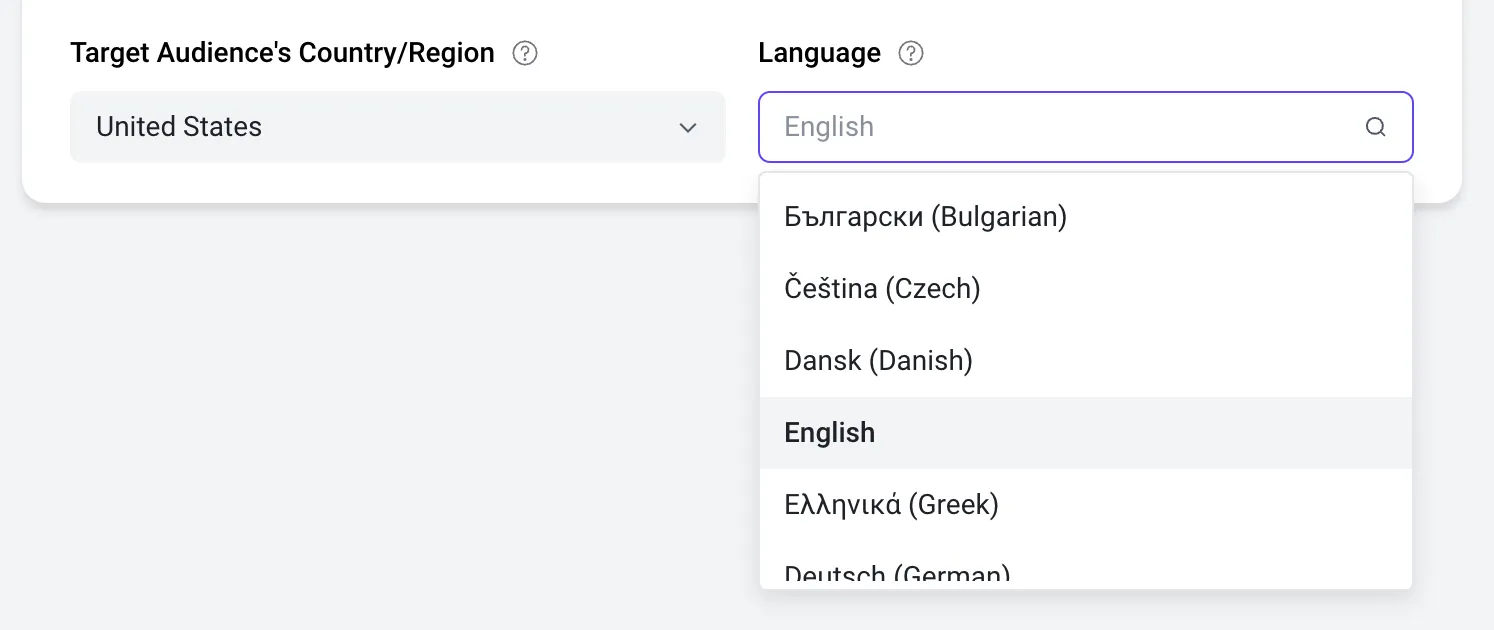Why target markets and languages?
Market and language characteristics of Google search
Improving the global exposure of a brand is one of the most effective ways to increase traffic, potential customers, and clients. Most of the world's population is connected to the internet, and this number is increasing every year. At the same time, the global Internet is not just in English and Chinese. To take advantage of this expanding potential customer base, your search must meet the diverse needs and preferences of users in various regions. Specifically, Google search results depend on location, as Google's goal is to display the most relevant results based on each user's location. This is due to several key factors.
-
Google also believes that users' language preferences are usually related to their location. If someone searches in English, Google will display the results in English, and its source is most relevant to the English audience.
-
User preferences and needs usually vary by location. For example, when someone searches for "café", they usually want to see results for local cafes rather than cafes in another city. Google uses location to understand the search context and present the most useful results in the user's area. For example, if you search for "steakhouse" in Italy, Google will display a list of steakhouses in Italy and nearby areas. However, if you do the same search in Sydney, you will see a list of steakhouses in Sydney and its surrounding areas. This is because Google assumes that you are more interested in choosing the steakhouse closest to your location than in the steakhouse farther away from your location. For example, we can take a look at the following Google search results and note that there are more settings in Google's advanced search. Different search areas can be selected in the figure below.

Which markets and languages does QuickCreator support?
Because Google search has different search results and rankings in different countries/regions and language groups, QuickCreator needs users to target the market and language in the first step of content generation. The earlier you target the market and language, the earlier you can capture content from different markets, analyze the search intentions of different groups of people, and further ensure that the titles and outlines produced are more targeted.
QuickCreator currently supports 86 countries/regions as target markets
| Country | Country Code |
|---|---|
| Argentina | ar |
| Australia | au |
| Austria | at |
| Azerbaijan | az |
| Bahamas | bs |
| Belgium | be |
| Brazil | br |
| Bulgaria | bg |
| Cameroon | cm |
| Canada | ca |
| Chile | cl |
| China | cn |
| Colombia | co |
| Croatia | hr |
| Cuba | cu |
| Cyprus | cy |
| Czech Republic | cz |
| Denmark | dk |
| Egypt | eg |
| Estonia | ee |
| Ethiopia | et |
| Finland | fi |
| France | fr |
| Germany | de |
| Ghana | gh |
| Greece | gr |
| Greenland | gl |
| Hong Kong | hk |
| Hungary | hu |
| Iceland | is |
| India | in |
| Indonesia | id |
| Ireland | ie |
| Israel | il |
| Italy | it |
| Jamaica | jm |
| Japan | jp |
| Kazakhstan | kz |
| Republic of Korea | kr |
| Latvia | lv |
| Libyan Arab Jamahiriya | ly |
| Lithuania | lt |
| Luxembourg | lu |
| Macao | mo |
| the Former Yugosalv Republic of Macedonia | mk |
| Malaysia | my |
| Malta | mt |
| Mexico | mx |
| Monaco | mc |
| Netherlands | nl |
| New Zealand | nz |
| Nigeria | ng |
| Norway | no |
| Pakistan | pk |
| Panama | pa |
| Paraguay | py |
| Peru | pe |
| Philippines | ph |
| Poland | pl |
| Portugal | pt |
| Qatar | qa |
| Romania | ro |
| Russian Federation | ru |
| Saudi Arabia | sa |
| Serbia and Montenegro | cs |
| Singapore | sg |
| Slovakia | sk |
| Slovenia | si |
| South Africa | za |
| Spain | es |
| Sweden | se |
| Switzerland | ch |
| Taiwan, Province of China | tw |
| Thailand | th |
| Tunisia | tn |
| Turkey | tr |
| Ukraine | ua |
| United Arab Emirates | ae |
| United Kingdom | uk |
| United States | us |
| United States Minor Outlying Islands | um |
| Uruguay | uy |
| Uzbekistan | uz |
| Viet Nam | vn |
| Virgin Islands, British | vg |
| Virgin Islands, U.S. | vi |

QuickCreator supports audience targeting in 23 languages
| Language | Language Code |
|---|---|
| Bulgarian | bg |
| Chinese (Simplified) | zh-CN |
| Chinese (Traditional) | zh-TW |
| Czech | cs |
| Danish | da |
| Dutch | nl |
| English | en |
| French | fr |
| German | de |
| Greek | el |
| Hindi | hi |
| Indonesian | id |
| Italian | it |
| Japanese | ja |
| Korean | ko |
| Polish | pl |
| Portuguese (Brazil) | pt-BR |
| Portuguese (Portugal) | pt-PT |
| Russian | ru |
| Spanish | es |
| Thai | th |
| Turkish | tr |
| Vietnamese | vi |